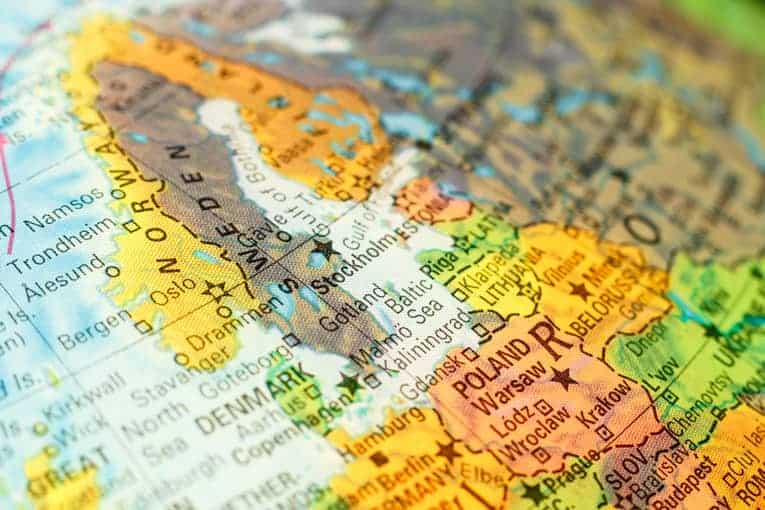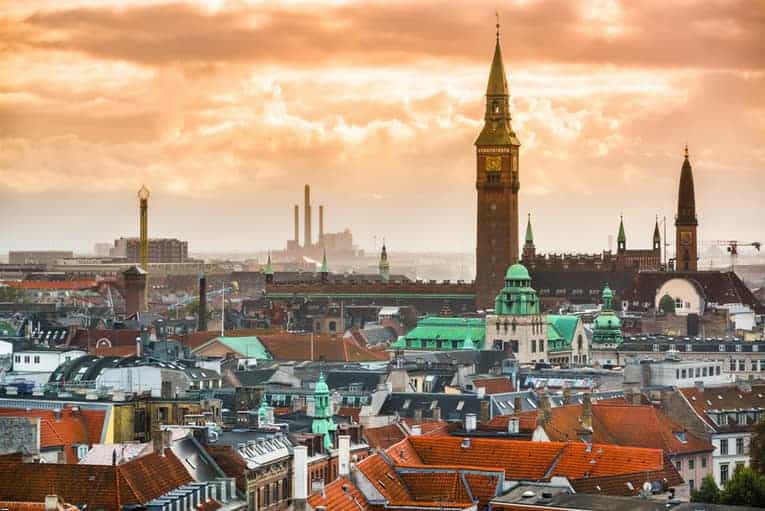Norway, Sweden, and Denmark are each part of the region of Northern Europe known as Scandinavia. These countries have a shared history, and like many other places in the world, they have experienced periods of unity and disunity.
Related to the disunity, some people have the perception that Norwegians hate their Swedish and Danish neighbors. Is this true?
Collectively, Norwegians don’t hate Swedes and Danes. Are there individual or fringe exceptions to this general fact? Yes.
Some Norwegians have negative views towards their neighbors, similar to adjacent countries in other regions of the world, because past hostilities sometimes result in negative present-day stereotypes.
Questions about disunity, and even hatred, seem relatively out of place in the region of Scandinavia because it’s collectively known as the happiest place in the world.
Yet historical disagreements, and international conflict, can create rifts between neighboring people groups, even ones their current citizens didn’t directly experience.
The people of Iceland are fascinating. See Why Do Some Icelandic People Look Asian? to learn more.

Norwegians, Swedes, and Danes: Insights from History
The people who live in neighboring countries around the world, like in Scandinavia, often have many similarities.
For instance, non-Scandinavians observe many similarities between Norwegians, Swedes, and Danes, especially when it comes to appearance, politics, and lifestyle.
Yet, it is sometimes the case that neighboring countries, though their people can be similar, have more conflict with each other, not less.
One main reason this is the case is because of the competition over resources.
Neighboring countries sometimes seek the same land and water use. They may have different policies on border control. One economy may be stronger than the other.
Neighbors may also have different religious convictions as well. Their leaders may have different policies as well.
14th-century agreement
From the 10th to 13th century A.D., Norway, Sweden, and Denmark were united though they were three separate kingdoms.
Then in 1387, the three countries joined together through a unification agreement called the Kalmar Union. (Also see Do Danes and Swedes Hate Each Other?)
15th-century disagreement
Later, in 1523, Sweden left the alliance, which resulted in increased tension among the Scandinavian nations.
The aftermath of Sweden’s decision, and the regional instability it created, eventually resulted in a civil war between Norway and Denmark.
It wasn’t until 1536, that a new alliance between Norway and Denmark was formed. Sweden, however, remained the regional outlier for more than a century.
The Treaty of Copenhagen, signed in 1660, signaled Sweden’s re-entry into a union with Norway and Denmark. (Also see Is Denmark and the Netherlands the Same Country?)
Since the Treaty of Copenhagen, there haven’t been significant problems between the three Scandinavian countries that have reached the extremes of military conflict.
Generally, Norway, Denmark, and Sweden have a strong regional connection, which is marked by a strong economy, shared social values, and several land and water-use agreements.
But do some people living today still have resentment and hold negative views about a neighboring people group due to conflicts that happened centuries ago? It’s likely.
In other regional conflicts around the world, present-day racial, political, and social tensions can be traced back thousands of years, not just hundreds like in Scandinavia.
Also, see Scandinavia Flags: Compare Designs and Meanings to learn more.

National pride and international rivalry in Scandinavia
National pride certainly exists in Scandinavian countries like it does elsewhere in the world. Norwegians love their country and many of its citizens believe it is better than other nations, though in a non-hateful way.
The same is true of Danish and Swedish people. Their residents have a healthy pride in their people, history, and social priorities.
Competition and rivalry exist as well. In sports, for example, Norwegians want to defeat Danes and Swedes, when it comes to hockey, skiing, and other winter sports competitions.
Competitors, though driven and passionate about their sport, are often friendly with one another before and after games and events.
Yet each country wants to beat the others, for example, in the medal count at the Winter Olympics.
In these ways, it may be possible to compare the competition among the countries to sibling rivalries.
Yes, they want to beat each other and claim victory at whatever they are doing. However, there is no ill will toward others or a collective desire for something harmful to happen to anyone.
Also, Do Swedes Actually Like Surstromming? to learn more about Scandinavian culture.
Norwegian perspectives on non-natives
Some Norwegians, like some Danes and Swedes, have a certain perspective about visitors and non-natives who have relocated to Norway.
Their negative perception isn’t necessarily rooted in racial stereotypes. It could be economic as well.
Just like in other countries around the world, sometimes native residents don’t want others coming into their country and taking jobs or benefiting from social programs that they haven’t been into very long or not at all.
Are Norwegians more competitive than Danes and Swedes?
Some people believe Norwegians are just more competitive than their neighbors. This perception is subjective, however, and difficult to measure through polling, reporting, or data analyses.
Some in the region believe Norwegians raise their children differently than others and instill in them a national pride that may not necessarily have implications for neighboring people groups, but it sometimes results in such perceptions. (Also see Are Norwegians and Swedes the Same People?)
Others disagree and hold that Norwegians raise their children the same as Danes and Swedes do.
Competitive spirits are often the product of particular values that are held individually.
- For example, a Norwegian who is hyper-competitive about business and profits, may possess a national pride when it comes to comparisons of wealth.
- A Norwegian who is passionate about social issues, may have a national pride when it comes to comparisons of tolerance or the strength and availability of social programs.
- A Norwegian who is passionate about winter sports, may have a national pride when it comes to comparisons about speed skating or cross-country skiing.
While such competitive Scandinavians may cross a line at a given time, like a Dane who shouts negative comments to a Swede during a hockey game, collectively the competitive spirits of Scandinavians don’t result in harmful outcomes.
Also, see Democratic Socialism in Scandinavia to learn more about Scandinavian culture.
Scandinavian Stereotypes
Could the question, “Why do Norwegians Hate Swedes and Danes?” come from stereotypes that non-Scandinavians have about people in the region?
Non-Scandinavians may not be the root cause of any, or all of, such stereotypes, but they may contribute to them by believing them and expressing them to others.
So what are other stereotypes people have about Scandinavians?
All Scandinavians look the same
It’s true that Scandinavia holds the highest percentage of people with blonde hair and blue eyes in the world.
All Scandinavians drink alcohol
One common stereotype about people from Sweden and Denmark is that they drink a lot of alcohol. Some do; some don’t.
Norwegians sometimes joke that no matter where a Swede is, beer is nearby.
Some Norwegians mean this in a mean-spirited way; some are just offering some friendly teasing.
Some Swedes are deeply offended at the joke; some laugh and agree. (Also see Why Do Doors Open Outward in Sweden?)
Scandinavians are rude
Countries all around the world have different traditions and attitudes when it comes to receiving visitors and welcoming people who have relocated to their homeland.
What is considered friendly in one country, may not be in another. What is considered rude in one country may not be considered rude in another one.
People in some countries offer kisses on the cheek. People in other countries prefer to shake hands.
In other places, people prefer not to touch at all. People in some countries welcome people with a conversation.
People in other countries merely exchange a one-word greeting.
In other places, no words are exchanged at all and it’s not intended, or perceived as, rude.
So why do Norwegians hate Swedes and Danes? Actually, they don’t hate them at all. Norwegians, Swedes, and Danes all get along very well. (Also see What Are Reindeer Used for in Norway? to learn more.)
Perceived tension may be due to competition and rivalry that is not hate-based.
It may be due to regional and cultural attitude tendencies that don’t necessarily have negative roots.
